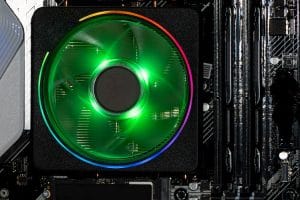 Technology has driven operations in most industries for so long that it can be difficult to remember a time when it hasn’t. It’s the norm for most industries, and for companies to remain competitive, much of their investment and advancement has to focus on making their technology solutions more powerful and efficient. That often means more than just implementing the most advanced technologies; it also means implementing the most efficient and effective periphery systems, such as those responsible for an application’s electrical thermal management. With modern heat exchangers and custom thermal solutions, more efficient and eco-friendly cooling has become the norm for companies in a variety of different fields.
Technology has driven operations in most industries for so long that it can be difficult to remember a time when it hasn’t. It’s the norm for most industries, and for companies to remain competitive, much of their investment and advancement has to focus on making their technology solutions more powerful and efficient. That often means more than just implementing the most advanced technologies; it also means implementing the most efficient and effective periphery systems, such as those responsible for an application’s electrical thermal management. With modern heat exchangers and custom thermal solutions, more efficient and eco-friendly cooling has become the norm for companies in a variety of different fields.
Companies use less energy for it
Eco-friendly can mean many different things, but most commonly, it involves how a particular system utilizes energy. Conservation is the ultimate goal. However, traditional electrical cooling solutions were not designed to be energy efficient. On the contrary, systems like air conditioning and air compression need large amounts of energy to operate as long as most industries demand. It was an unavoidable balance at first, which is why electrical thermal management was rarely equated with eco-friendliness. Today, however, more companies are taking advantage of innovative heat transfer methods designed to prevent overheating without the use of chilled air. Transferring heat requires significantly less energy, and companies can reduce their need for it dramatically when upgrading their cooling systems to heat exchangers.
Operations aren’t interrupted by cooling issues
The significantly reduced need for energy makes heat exchangers more eco-friendly than traditional solutions in that regard, but that isn’t the only benefit to streamlining electrical cooling methods. When companies don’t need to rely on more complicated air conditioning or air compressing machinery, they don’t have to dedicate as much time to maintaining or repairing these solutions. Heat exchangers, for example, are designed to facilitate the transfer of heat through simple cooling designs, such as heat pipes or cold plates. The fluid absorbs, transfers, and dissipates the heat before flowing back toward the heat source, all within a self-contained loop that requires minimal or no external moving parts, except for one or a few fans.
Other processes become more eco-friendly
As modern companies entrust more of their electrical cooling processes to heat exchangers, eco-friendly electrical cooling has become more of the norm, and the benefits it provides have become essential to companies’ success. As the demand for more eco-friendly business processes has grown, the advantages that have stemmed from more streamlined electrical cooling have become more important. For instance, more natural heat transfer methods have helped companies transform several other processes with the aim of being more eco-friendly, such as making it more efficient to implement wastewater treatment processes, and more.
For more information about making eco-friendly electrical cooling the norm, call Noren Thermal Solutions in Taylor, TX, at 866-936-6736.







